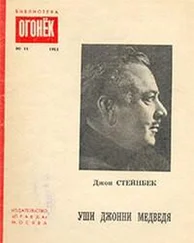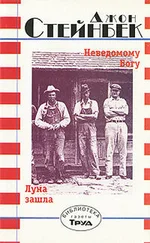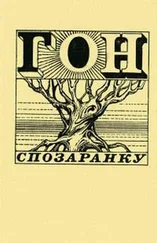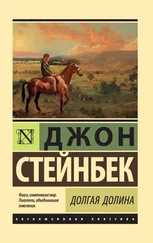Джон Стейнбек - Cup of Gold [Золотая чаша]
Здесь есть возможность читать онлайн «Джон Стейнбек - Cup of Gold [Золотая чаша]» — ознакомительный отрывок электронной книги совершенно бесплатно, а после прочтения отрывка купить полную версию. В некоторых случаях можно слушать аудио, скачать через торрент в формате fb2 и присутствует краткое содержание. Год выпуска: 1929, Жанр: Прочие приключения, на английском языке. Описание произведения, (предисловие) а так же отзывы посетителей доступны на портале библиотеки ЛибКат.
- Название:Cup of Gold [Золотая чаша]
- Автор:
- Жанр:
- Год:1929
- ISBN:нет данных
- Рейтинг книги:5 / 5. Голосов: 1
-
Избранное:Добавить в избранное
- Отзывы:
-
Ваша оценка:
- 100
- 1
- 2
- 3
- 4
- 5
Cup of Gold [Золотая чаша]: краткое содержание, описание и аннотация
Предлагаем к чтению аннотацию, описание, краткое содержание или предисловие (зависит от того, что написал сам автор книги «Cup of Gold [Золотая чаша]»). Если вы не нашли необходимую информацию о книге — напишите в комментариях, мы постараемся отыскать её.
Cup of Gold [Золотая чаша] — читать онлайн ознакомительный отрывок
Ниже представлен текст книги, разбитый по страницам. Система сохранения места последней прочитанной страницы, позволяет с удобством читать онлайн бесплатно книгу «Cup of Gold [Золотая чаша]», без необходимости каждый раз заново искать на чём Вы остановились. Поставьте закладку, и сможете в любой момент перейти на страницу, на которой закончили чтение.
Интервал:
Закладка:
And so he had grown wistfully old, on the island. His library was the finest in the Indies, and, as far as information went, he was the most learned man anywhere about. But his learning formed no design of the whole. He had learned without absorbing, remembered without assimilating. His mind was a sad mass of unrelated facts and theories. In his brain, as on his shelves, Caesar's Commentaries stood shoulder to shoulder with Democritus and a treatise on spontaneous generation. James Flower, who had cried to be a creator, became a quiet, kindly little gentleman, somewhat ineffectual and very inefficient. In his later years he had begun to mistake convictions for ideas. If a man stated any belief loudly enough he frightened James Flower, for, he said to himself, "Here is one of those divinely endowed creatures who control the fire I lack altogether."
There were few white men on the great green plantation, and those who did grub there were sullen, tattered wretches, serving for some forgotten felony against the Crown. Within their bodies the fever lay like a light sleeper who wakes and snarls, then sleeps again with one malicious eye unclosed. They kneaded the soil in the fields with their fingers, and as their years of servitude crawled on their eyes deadened, their shoulders slumped, and a tired, dull imbecility stretched cloying webs in their brain. Their language was a bastard argot of London, with a few words from the Guinea Negroes and a few clattering Carib phrases. When these men were loosed from their slavery, they wandered listlessly about for a time, and watched the others go to work with something of longing. Then, after a little, they either signed new papers of indenture, or went marauding like tigers from a broken cage.
The overseer had been one of them, and now that he commanded those who had been his fellows, he inflicted suffering in memory of his own pain.
James Flower brought Henry to the shore, and something in the boy's silent misery touched the planter.
He had never been able to think of his slaves as men before. He had blindly followed the injunctions of the shrewd elder Cato in dealing with his slaves. But here was one who was very obviously a human, and possibly a gentleman. This boy had cried that he didn't want to be a slave. The others always landed knowing their lot, and displaying a sullen rancor which must be beaten out of them on the cross.
"Do not be so hurt, child," the planter said. "You are very young to be coming to the islands. In a few years you will be a man, and strong."
"But it was on me to be a buccaneer," said Henry dully. "I came out to the sea to make my fortune and a name. And how can I do these things if I am a slave toiling in the fields?"
"I do not intend that you shall toil in the fields. I wanted you-I wanted a boy to be about the house now I am growing old. I wanted a-a kind of companion who would talk with me and hear me talk. The other planters come to the house and drink my wine, but when they leave I think they laugh at me and laugh at my books-my lovely books. And so you will sit with me in the evenings, perhaps, and we will talk of the things in books. Your father was a gentleman, I think. You have the look.
"Now, today," James Flower went on mildly, "we have a hanging, and you and I must hurry to be there.
I don't just know what the fellow did, but it was enough. And what says-oh! what's his name? I have read it, anyway-'The chief value of violent punishment lies with those on whom the same might fall.'
Yes, I think it is well to have some one hanged every now and then. It is expensive, but very conducive to good behavior among the rest. But my overseer attends to all that. Do you know, I think he really enjoys ii."
He led the boy to a square of thatched mud huts, built close together, each with its door opening out into a kind of plaza. And in the center of the square, like a horrible fetish, rose a tall gallows made of black wood and polished with oil until it shone dully in the sunlight. It was so placed that no slave could look out of his hovel without seeing the black horror that might be his end. This was the overseer's work. With his own hands he had rubbed the dark wood until it glowed. He was accustomed to stand and gaze at it, head cocked to one side, as an artist might look at his new finished work.
The planter and the boy seated themselves. The slaves were herded into the square. And Henry saw a naked black figure squirm and writhe at the end of a rope while the Negroes rocked themselves back and forth on the ground and moaned; while the white slaves gritted their teeth and cursed harshly to keep from shrieking. The Caribs squatted on their hams and watched with no particular interest and no fear.
Thus they might squat and watch the fire which cooked their food.
When it was all over, and the black victim hung limply by his crooked neck, the planter looked down and saw that Henry was crying nervously.
"I know it is bad the first time," lie said gently "When I first saw it, I did not sleep for a good while. But after a little, when you have seen five-ten-a dozen-go out in this way, you will come to have no feeling about it, and no more thought of it than of a chicken flopping about with a wrung neck."
Henry's breath still came in little miserable chokes.
"I can show you in the works of Holmaron on the practices of the Inquisition, a dissertation on this very thing you feel. 'The first time one sees human suffering,' he says, 'it is an unnatural thing, because, within one's experience, placid, comfortable people are the rule. But, after a number of such experiences, the sight of torture becomes a normal thing, and normal humans come to relish it to various extents.' Remind me to show you the passage sometime; though I must say I have never come to relish the matter."
In the evenings of the months that came, the two of them sat in the black depths of the veranda, and James Flower poured his unrelated facts into the ears of young Henry Morgan. The boy listened eagerly, for often the planter spoke of ancient wars and their conduct.
"And are these things in the books that line the walls?" Henry asked one night.
"All of these things, and, oh! many thousands of things more."
After a time Henry begged, "Would you be teaching me the languages of the books, sir? There must be things there I should like to read for myself."
James Flower was delighted. In teaching this boy the things he had read, he had come nearer to satisfaction than ever before. His heart was warm toward the young slave.
"The Latin and the Greek!" he cried with enthusiasm. "You shall learn them from me; and the Hebrew, too, if you wish."
"I want to read the books of war and sailing," young Henry said. "I want to read of those old wars you speak of, for one day I shall be a buccaneer and take a Spanish town."
And in the months that followed, he learned the languages very rapidly because of his wish to read the books. James flower plunged more deeply into his volumes than ever, for his new role of teacher was very dear experience to him.
After a little while, he would say, "Henry, will you tell the overseer to gather the molasses on the beach? A ship is in to buy it." And later still, "Henry, is there anything I should be doing today?"
"Well sir, there's a great ship down there, in from the Netherlands. We are in strong need of sickles. The Caribs have stolen nearly all the old ones to make swords with. We shall have trouble with those Caribs one day, sir."
"Well, see to the sickles, will you, Henry? I hate to be moving in this sun. And have the Indians punished if they steal things. Attend to that, too, will you?"
Little by little, Henry was absorbing the management of the plantation.
One evening, after Henry had been there a year, he gained the paramount respect of James Flower; rather a wistful respect, though he lost no love by it.
Читать дальшеИнтервал:
Закладка:
Похожие книги на «Cup of Gold [Золотая чаша]»
Представляем Вашему вниманию похожие книги на «Cup of Gold [Золотая чаша]» списком для выбора. Мы отобрали схожую по названию и смыслу литературу в надежде предоставить читателям больше вариантов отыскать новые, интересные, ещё непрочитанные произведения.
Обсуждение, отзывы о книге «Cup of Gold [Золотая чаша]» и просто собственные мнения читателей. Оставьте ваши комментарии, напишите, что Вы думаете о произведении, его смысле или главных героях. Укажите что конкретно понравилось, а что нет, и почему Вы так считаете.
![Джон Стейнбек Cup of Gold [Золотая чаша] обложка книги](/books/181372/dzhon-stejnbek-cup-of-gold-zolotaya-chasha-cover.webp)





